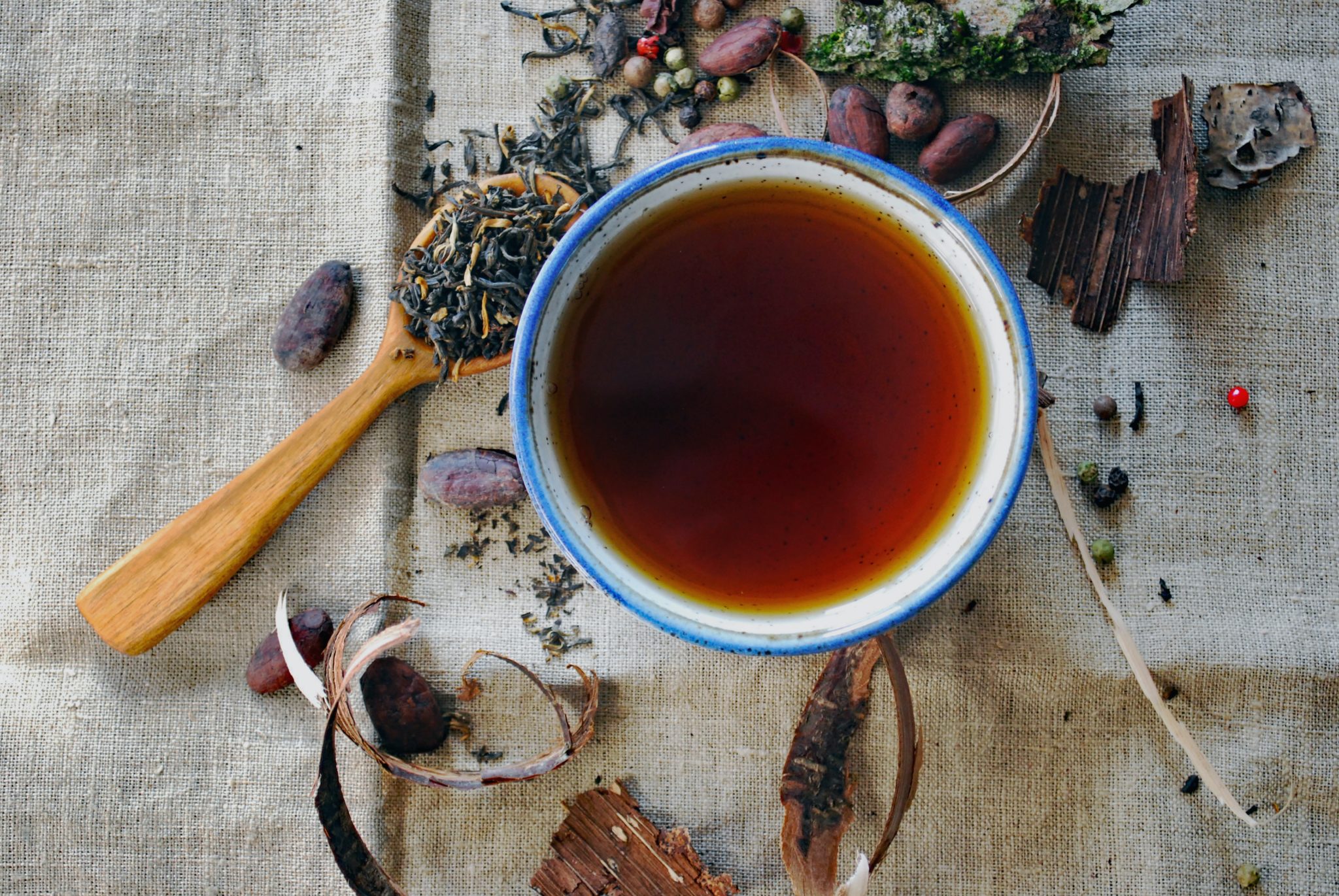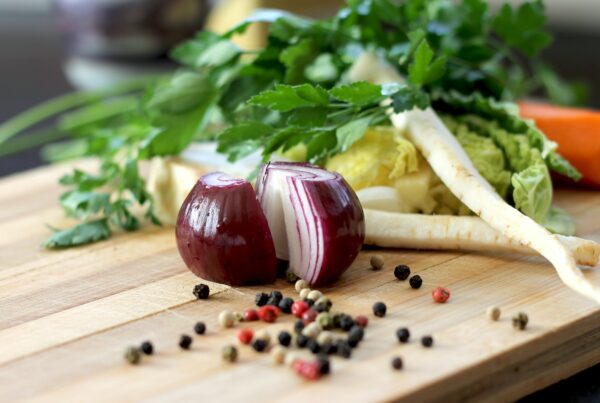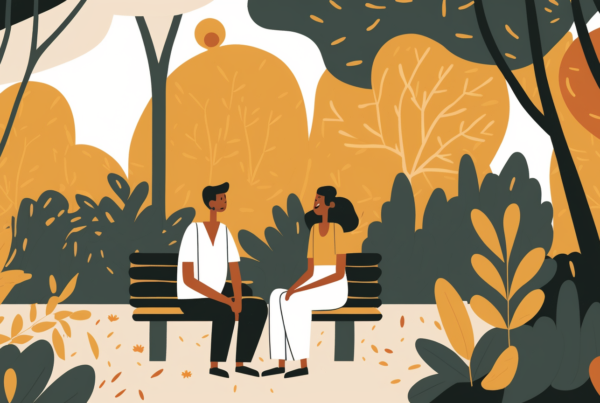W here I grew up—a small town in Northwest Iowa—it didn’t seem like there was much opportunity to build relationships with neighbors of different faiths. My first encounter with people of different faith backgrounds came through my college’s international club. (Oddly enough, that college was in my very same hometown where I didn’t expect to find opportunity.) I joined the club out of curiosity: what did people all over the world believe? What were their interests and hobbies? What were their families like? And, of course, what did they eat? That experience was so rich and valuable to me. It was a place of mutual friendship, where we shared faith, food, jokes, politics, and so much more.
Perhaps you are like me, underestimating the diversity of people and faith in my own context. Perhaps you have some growing to do before you encounter and befriend these neighbors. I encourage you to have a framework of belief and understanding so that you are better able to love your neighbor, even if they have a different faith background. As you look around you, my guess is that you will find a greater diversity of people than ever before, making the world seem increasingly smaller. That’s why I believe it’s so important for us as Christians to engage our neighbors of different faiths and love them as Jesus would.
I think that is why I love Laura Osborne’s work as a campus minister at Western Michigan University International Campus Ministries. Her story reminds me of so many fond memories I had building relationships with international students. Laura tries to create a home away from home for students coming from around the world. “It’s a space of hospitality,” she says. “It’s a place where you can gather and take a deep breath.” And nothing feels more welcoming and hospitable than gathering together for a home cooked meal. She laughs as she says, “I don’t think there is an event where we don’t have food.” And it makes sense, because that is the very foundation that this ministry was built upon when it started in the 1970s. A couple of professors started a weekly potluck lunch to create community for their international students. The foundation of food and community proved to be powerful and enduring; the ministry continues to this day and now gathers 200-250 students for lunch every Thursday (pre-pandemic). “Just imagine church potluck or family reunion,” says Laura. “There are people crying, laughing, and studying.”
The cultures represented in this ministry are numerous with WMU students coming from 50 different countries around the world. Imagine trying to serve students with a dizzying amount of cultural differences. “Food is a common denominator. We have yet to find a culture where food is not important. I’ll let you know when I find one,” says Laura. She has so many stories of making food together with the students, whether it’s American food, Turkish food, Indian food, Iraqi food, and the list goes on and on. She shares a particularly beautiful story that sums up the power of sharing food together. “At the end of our lunches, we joked that was time for tea… We had an intern last year who said, ‘What if we did a tea party?’ With the three girls I have, I was thinking a little girl’s princess tea party. She said no, a party where everybody brings tea from their culture and we share and people make a little snack to go with it. I said, I’m in. So we had a tea party at my house. … It was such a fantastic time to share with one another about cultures. And I don’t know how many times students have said to me, as we are cleaning up a meal or whatever at my house, ‘This is just like being back home. This is what we do at home: we just sit around and visit and have tea after dinner.’” This story really highlights the incredible opportunity everyone gets to be loved and to share love through food. This is an aspect that we often ignore when we think about serving our community. We don’t always think about the importance of providing opportunities for those that we serve to give back. It allows people to be seen in a different light, and it deepens understanding, establishes trust, and bestows dignity. Those are all ingredients that allow you to make an even more sustainable impact on your neighbor. Everyone has something to contribute and share. Sometimes it’s just about finding what the something is.
It’s these reciprocal relationships that allow Laura to engage the students—less than 10 percent Christians—about her faith in an organic way. “Faith comes up almost every time we gather,” she says. “I don’t have agendas for lots of our meetings. When it comes to faith and evangelism, it comes up so much more naturally and all the time. I have lots of opportunities to share Christ more than I ever thought I would.” It feels so natural because Laura is doing life with these students. Not only does she engage with them on campus, but she continually hosts them at her home. Students get to know her husband and daughters, so they basically become family. These conversations become as casual as talking about the weather or weekend activities. Opportunities like this not only allow you to share the good news, but they also allow you to view your faith anew. With new eyes, you can revisit the reasons you came to faith and the moments God’s love overwhelmed you. It can turn the ordinary into extraordinary and remind us of the story that we all fell in love with. Laura agrees that these opportunities have bolstered her own faith: “I feel very strong in my faith, and the more I meet [my neighbors of different faiths], the stronger I am in my own faith. And the more I can respect others.”
I had the opportunity to hear about Laura’s impact directly from one of her students. Khushi Bhatt is a Ph.D. student from India studying nuclear astrophysics who has been a part of International Students Ministries since she started at WMU. Her reflection epitomizes and describes the calling we all have as Christians to be salt and light in the world. “Since I was in first grade or kindergarten, I went to a convent school, a Catholic school. So I had good exposure about Christianity. I knew the Bible teaches ‘love thy neighbor.’ When I came here and when I attended the lunches, I didn’t know what campus ministries were and what they do. But honestly, by meeting [Laura]—saying something is one thing but doing it and demonstrating it is much more impactful. … I was a complete stranger to [Laura]. Why would she care to come to me and talk to me? …I’ve really learned to love thy neighbor and to love every individual [from Laura’s example]. From what [Laura] practices and how carries herself, and how she greets and welcomes everybody, not just in her house but everywhere she is. She makes them feel welcomed in her heart, which makes it so beautiful.”
And one might think that these relationships would be difficult to start, but Laura shares how strongly the students crave connection and community. “It’s amazing what students will share and how quickly,” she says. “It’s that longing for connections and building relationships in the country that you are in.” Even so, it might sound intimidating to jump in. Laura admits that she was initially a bit hesitant as well, especially when she first considered the call. “I love people but when it comes to different cultures, I’m just not well-versed. I’m happy to sit down and have those conversations. And the pastor, retiring, said, ‘That is all you need.’ I thought, well, I can do that. I’ve doing this for 6 years.” When she is meeting new students, she doesn’t over think it. “It’s a lot of sitting down and saying, ‘Hi, I’m Laura. Welcome.’ And food ends up being the best conversation starter.”
With students longing for connection and the simplicity of showing up, it’s surprising to her how few locals intentionally reach out to share some hospitality. “The majority of students that travel abroad don’t get invited into a local’s home, and we want to change that.” There is so much opportunity to love our neighbors from different countries and different faiths. There is a mission field that is ripe for the harvest. And the rewards are so plentiful. “It’s an honor to get to know these students and we have been given little gifts along the way,” says Laura “It makes my heart happy.”
Dive deeper with these resources:
Interfaith Relationships
Laura has kindly shared resources for faith communities interested in building interfaith relationships. There are resources and opportunities to network with the links below.
Religions for Peace
Interfaith Photovoice
Faith Over Fear
The resource below allows us to care for and create hospitable spaces for our Muslim neighbors. Connect with Laura Osborne if your faith community is interested in attending or hosting a Faith Over Fear training.
Featured recipe
Khushi's Masala Chai Tea
How to make a traditional masala chai to warm you up this fall and winter
Khushi was kind enough to share her family’s recipe for masala chai, a flavorful and warm drink that is commonly shared as a way to show hospitality and welcome guests into your home in India.
Ingredients
- ½ cup water
- 3/4 cup milk
- ½ tsp tea leaves (Khushi uses Wagh-bakri brand, but any tea will do)
- 1/8 tsp tea masala (a blend of various spices) Substitute: If you can’t find tea masala, you can substitute 2-3 cardamom seeds
- (Note: Less tea masala is okay but more will spoil the taste)
- ¼ inch ginger, grated, or chopped
- 1 tbsp sugar (brown or white)
- 3-4 fresh mint leaves (optional)
Instructions
- Boil water in a pot on the stove.
- Add tea masala, grated ginger, and tea leaves. Boil for 1-2 minutes.
- Add milk and sugar. Let it all boil for another 3-4 minutes,
- Then strain it with a strainer and serve hot.
Eduardo Rodriguez previously served the Reformed Church in America in the areas of local mission engagement and leadership.



